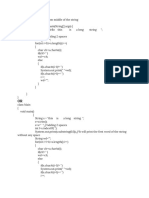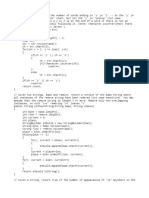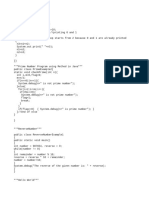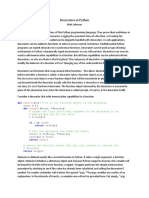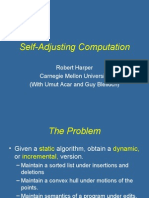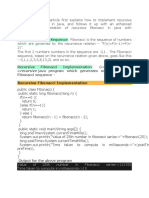0% found this document useful (0 votes)
8 views17 pagesStrings
The document provides a comprehensive overview of string manipulation techniques, including common methods, reversing words in a sentence, removing duplicates, and eliminating white spaces. It includes code implementations for various algorithms, such as checking for palindromes and segmenting strings based on a dictionary. Additionally, it discusses the runtime and memory complexities of each solution, highlighting their efficiency.
Uploaded by
amansin8888Copyright
© © All Rights Reserved
We take content rights seriously. If you suspect this is your content, claim it here.
Available Formats
Download as DOCX, PDF, TXT or read online on Scribd
0% found this document useful (0 votes)
8 views17 pagesStrings
The document provides a comprehensive overview of string manipulation techniques, including common methods, reversing words in a sentence, removing duplicates, and eliminating white spaces. It includes code implementations for various algorithms, such as checking for palindromes and segmenting strings based on a dictionary. Additionally, it discusses the runtime and memory complexities of each solution, highlighting their efficiency.
Uploaded by
amansin8888Copyright
© © All Rights Reserved
We take content rights seriously. If you suspect this is your content, claim it here.
Available Formats
Download as DOCX, PDF, TXT or read online on Scribd
/ 17



